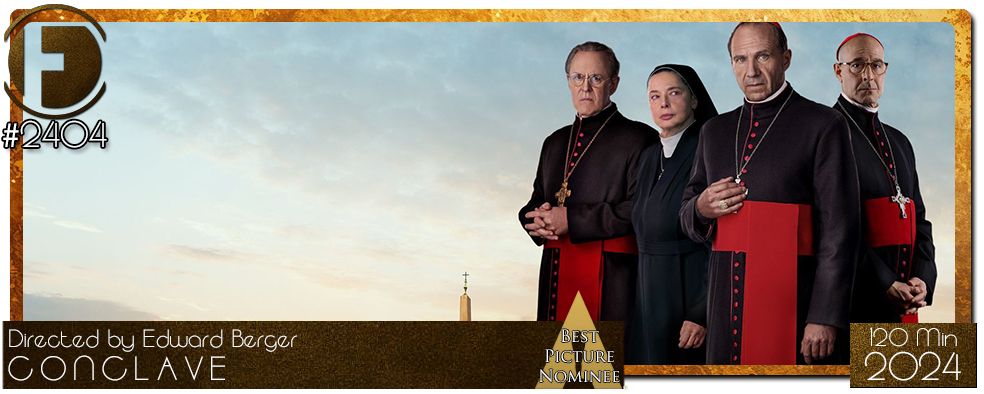Movie Review – Conclave
Principal Cast : Ralph Fiennes, Stanley Tucci, John Lithgow, Sergio Castellitto, Isabella Rossellini, Lucian Msamati, Carlos Diehz, Brian F O’Byrne, Merab Ninidze, Thomas Loibl, Jacek Koman, Loris Loddi, Balkissa Maiga.
Synopsis: When Cardinal Lawrence is tasked with leading one of the world’s most secretive and ancient events, selecting a new Pope, he finds himself at the center of a conspiracy that could shake the very foundation of the Catholic Church.
********
Has there ever been, in the whole of human history, an organisation that has provoked such mystery, provided so much conspiracy fodder, or elicited so much literary fan-fiction as the Catholic Church? You can keep your Freemasons and Illuminati, kick your Knights Templar to the curb, and throw SPECTRE, Hydra, and the Black Hand into the bin—because the undisputed champion of secret societies and mysterious organisations has to be the Catholic Church, and more specifically, anything surrounding the Papacy and Vatican City.
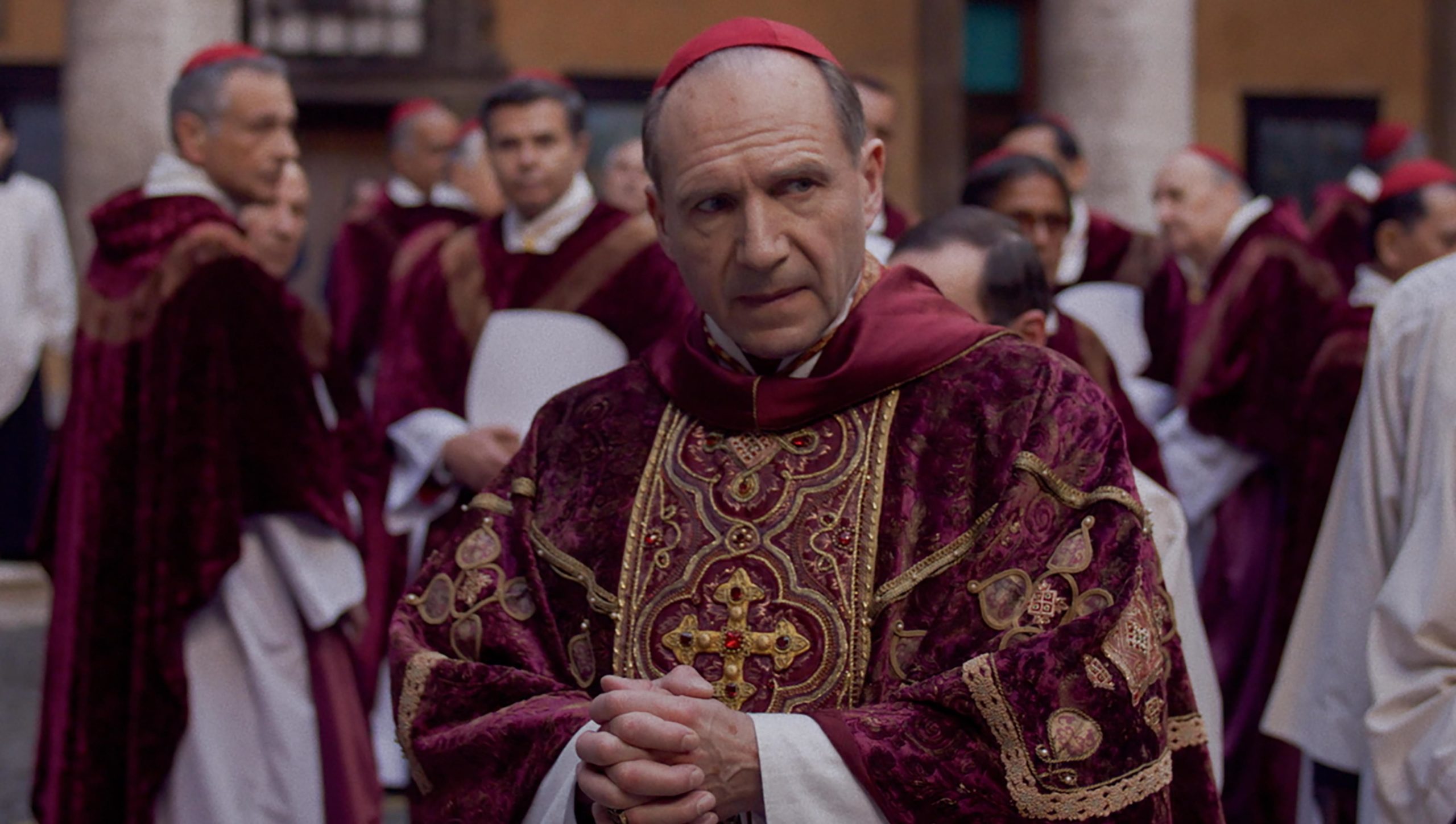
The Church has served as the backdrop for some of the most memorable fictionalised accounts in cinema history: from William Friedkin’s The Exorcist to Dan Brown’s Angels & Demons, and even dramatic works such as The Two Popes or Michael Anderson’s 1968 drama The Shoes of the Fisherman. Not to mention the treasure trove of B-movie fare like The Devil’s Advocate, Rosemary’s Baby, and The Vatican Tapes, all of which explore Catholic mythos with varying degrees of absurdity. With its vast history, unparalleled power, and aura of secrecy, the Vatican remains one of the most opaque institutions on the planet. Edward Berger’s Conclave attempts to peel back that veil of secrecy, presenting a slow-burn thriller that captures the bureaucratic intricacies and furtive traditions behind the selection of a new Pope. Anchored by a top-notch cast led by Ralph Fiennes, Conclave dives into the labyrinthine corridors of Vatican politics, delivering a tense and atmospheric exploration of faith, power, and morality.
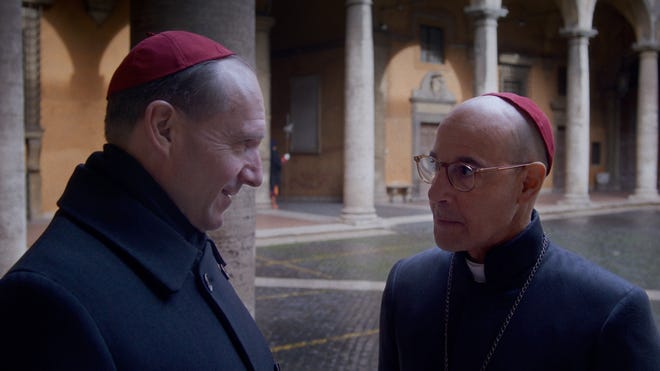
The plot, based on Robert Harris’ 2016 novel of the same name, is deceptively simple yet layered with complexity. Following the sudden death of the reigning Pope, the College of Cardinals is summoned to the Sistine Chapel to elect his successor through the centuries-old ritual of the conclave. Cardinal Thomas Lawrence (Ralph Fiennes) is tasked with overseeing the proceedings, which quickly become a maelstrom of intrigue and hidden agendas. Among the key players are the liberal Cardinal Bellini (Stanley Tucci), the staunchly conservative Cardinal Tedesco (Sergio Castellitto), and the reactionary Cardinal Tremblay (John Lithgow). Adding a touch of mystery is Sister Agnes (Isabella Rossellini), whose presence hints at deeper secrets and power struggles. As scandals are unearthed and an unexpected candidate emerges, the conclave becomes a battle not just for the Papacy, but for the soul of the Church itself.
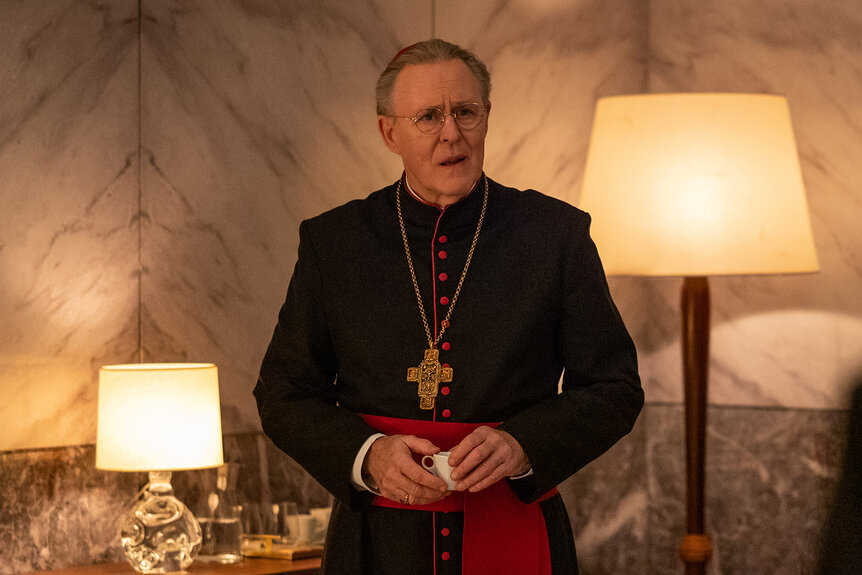
From the outset, Conclave immerses the viewer in its richly realised world. The production design is nothing short of extraordinary, with meticulously crafted sets that evoke the grandeur of the Sistine Chapel and the cloistered rooms of Vatican City. Since filming within the Vatican is strictly prohibited, the filmmakers relied on alternative locations and studio-built replicas to recreate the Church’s iconic spaces. The result is a visually stunning approximation that feels authentic and reverent. The cinematography complements this attention to detail, with subdued lighting and carefully composed shots that emphasise the weight of the decisions being made within those hallowed walls.
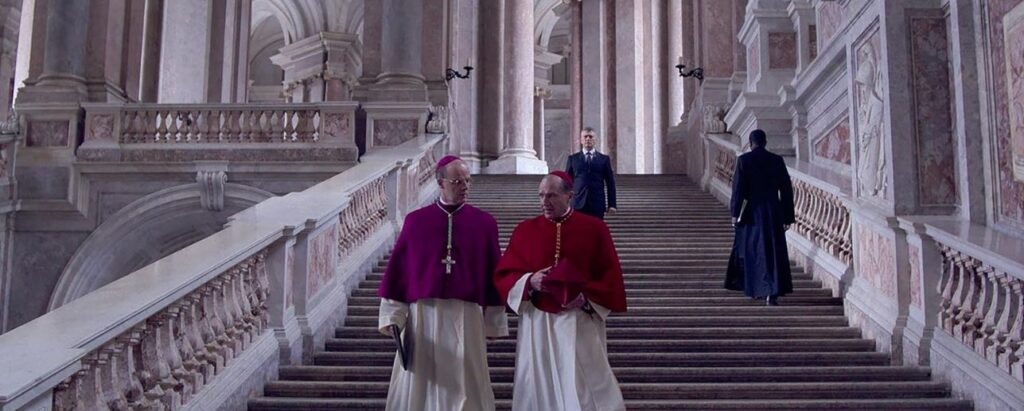
But how do you make a film about cardinals casting votes compelling? That’s where Edward Berger’s assured direction and Peter Straughan’s sharp screenplay come into play. The film masterfully builds tension through dialogue, subtle character dynamics, and the oppressive atmosphere of the conclave itself. The stakes feel monumental, not through bombastic action, but through the sheer gravity of the decisions being made. Berger deftly balances the film’s slow pace with moments of revelation, ensuring the audience remains engaged even during the quieter scenes.
At the heart of the film is Ralph Fiennes, who delivers a nuanced and deeply empathetic performance as Cardinal Lawrence. Fiennes captures the quiet torment of a man grappling with his faith while navigating the labyrinth of Vatican politics. His character’s internal conflict adds a layer of humanity to the story, grounding the high-stakes drama in personal struggle. Fiennes’ portrayal of Lawrence is magnetic, effortlessly commanding the screen as his character uncovers secrets that could shake the Church to its core.
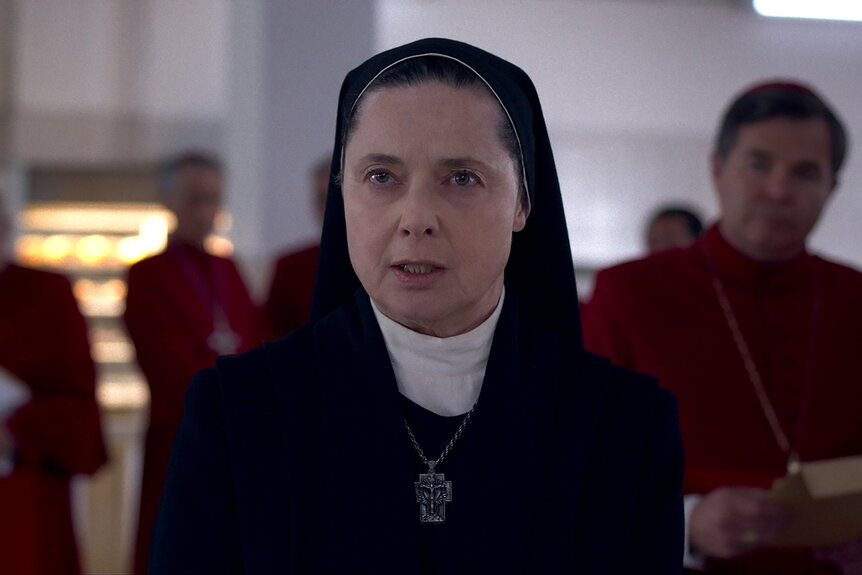
The supporting cast is equally formidable. Stanley Tucci shines as the progressive Cardinal Bellini, bringing both charm and gravitas to the role. John Lithgow, as the ambitious Cardinal Tremblay, delivers a performance that balances cunning with vulnerability, while Sergio Castellitto’s fiery turn as the hardline Cardinal Tedesco injects the film with an undercurrent of ideological tension. Isabella Rossellini, however, is somewhat underutilised as Sister Agnes. Her character is introduced with great intrigue, only to fade into the background as the story unfolds. Given Rossellini’s talent, it feels like a missed opportunity to explore the role of women within the Church’s patriarchal structure.
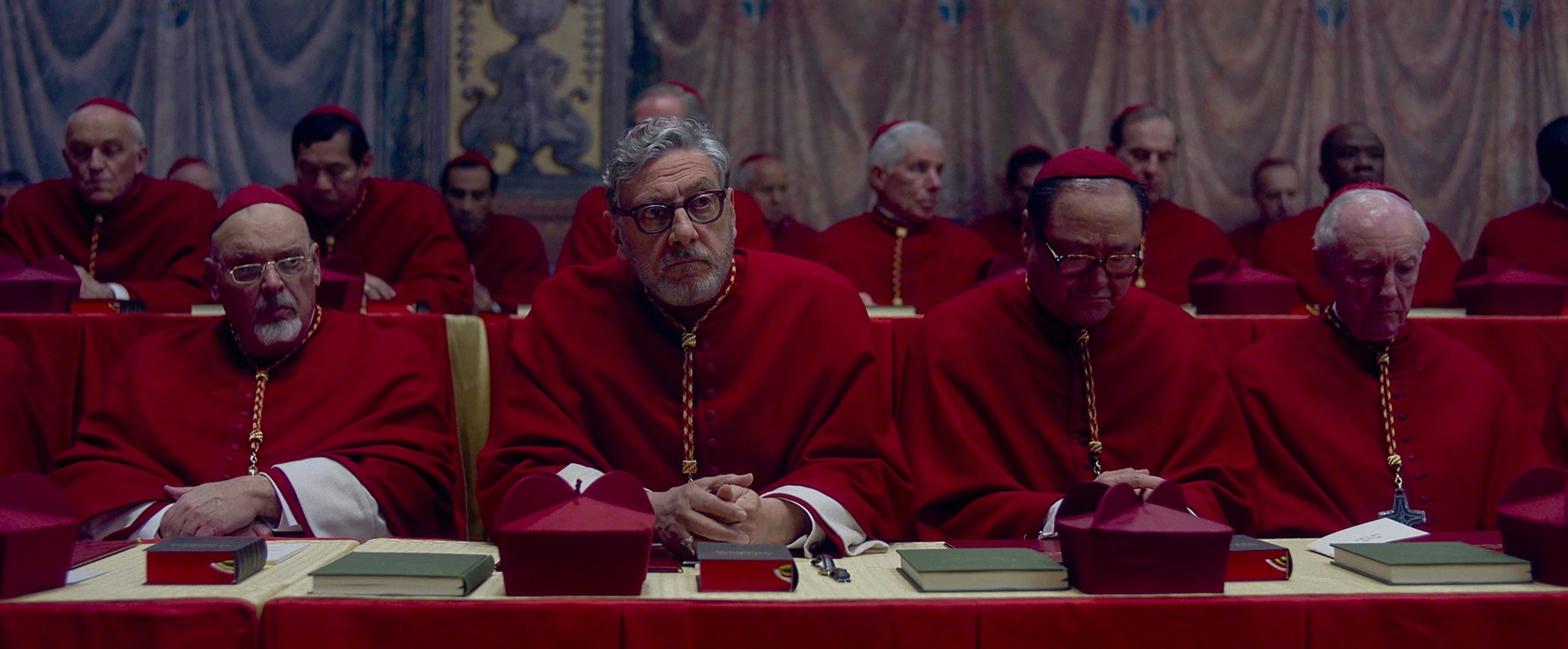
One of the film’s strengths is its ability to engage the viewer’s intellect. Conclave challenges the audience to consider the intersection of faith, morality, and ambition, all while navigating the labyrinthine rituals of the Vatican. It’s rare for a thriller to be both cerebral and emotionally resonant, but Conclave manages to achieve this balance with finesse. That said, the film is not without its flaws. While the deliberate pacing enhances the narrative’s gravitas, it may test the patience of viewers expecting a more traditional thriller. Additionally, the lack of a central antagonist or overt conflict might make the stakes feel abstract to some. However, for those willing to invest in its methodical storytelling, Conclave offers a richly rewarding experience.
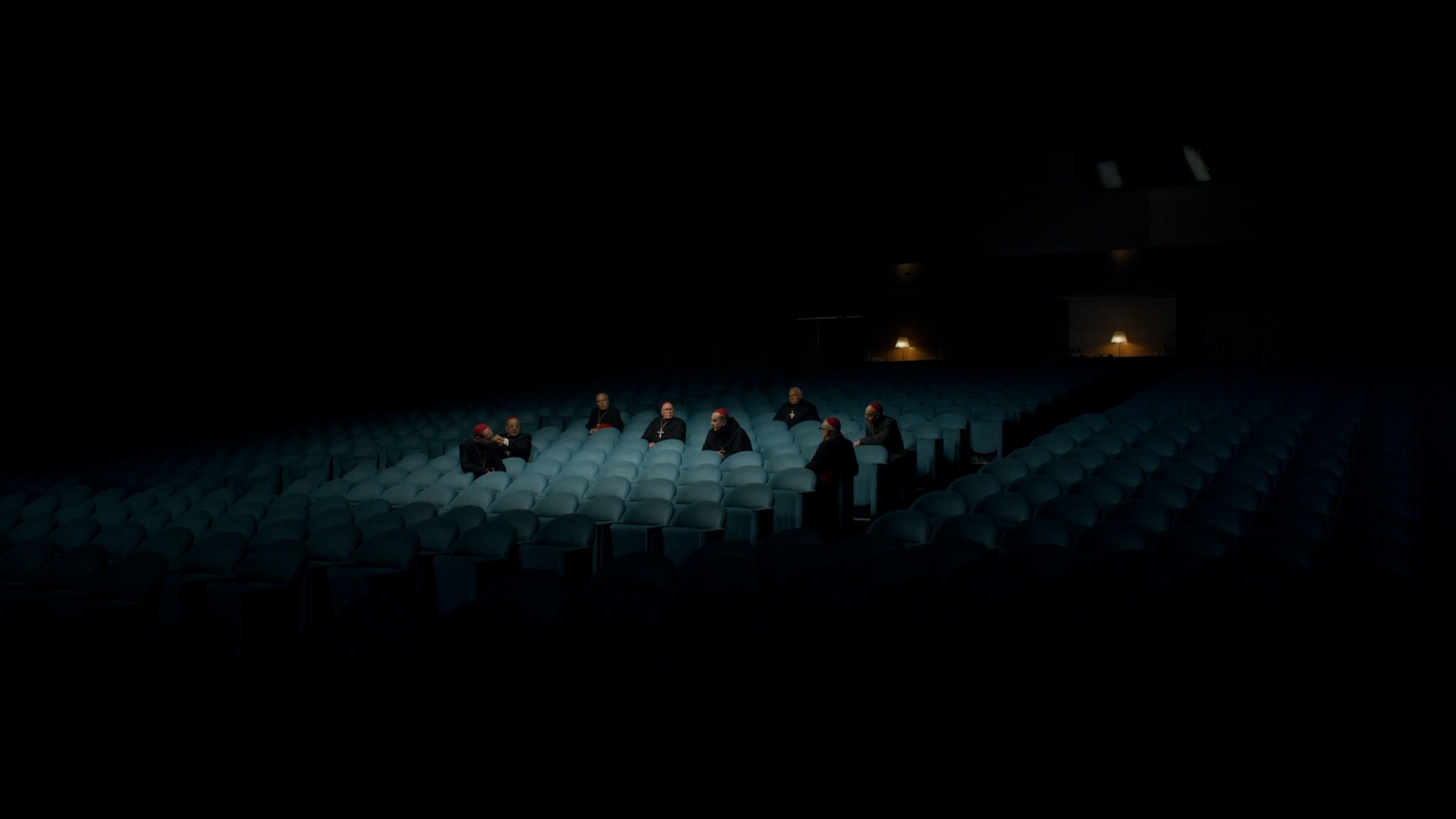
In the end, Conclave is a fascinating and beautifully crafted exploration of one of the world’s most secretive institutions. The cast delivers uniformly excellent performances, the production values are impeccable, and Edward Berger’s direction is both precise and evocative. While it may not appeal to viewers seeking fast-paced action or overt melodrama, the film’s intellectual and emotional depth make it a standout entry in the canon of Vatican-centric cinema. Whether you’re a devout Catholic, a lapsed believer, or a staunch atheist, Conclave is a film that will leave you pondering its themes long after the credits roll. Highly recommended.

